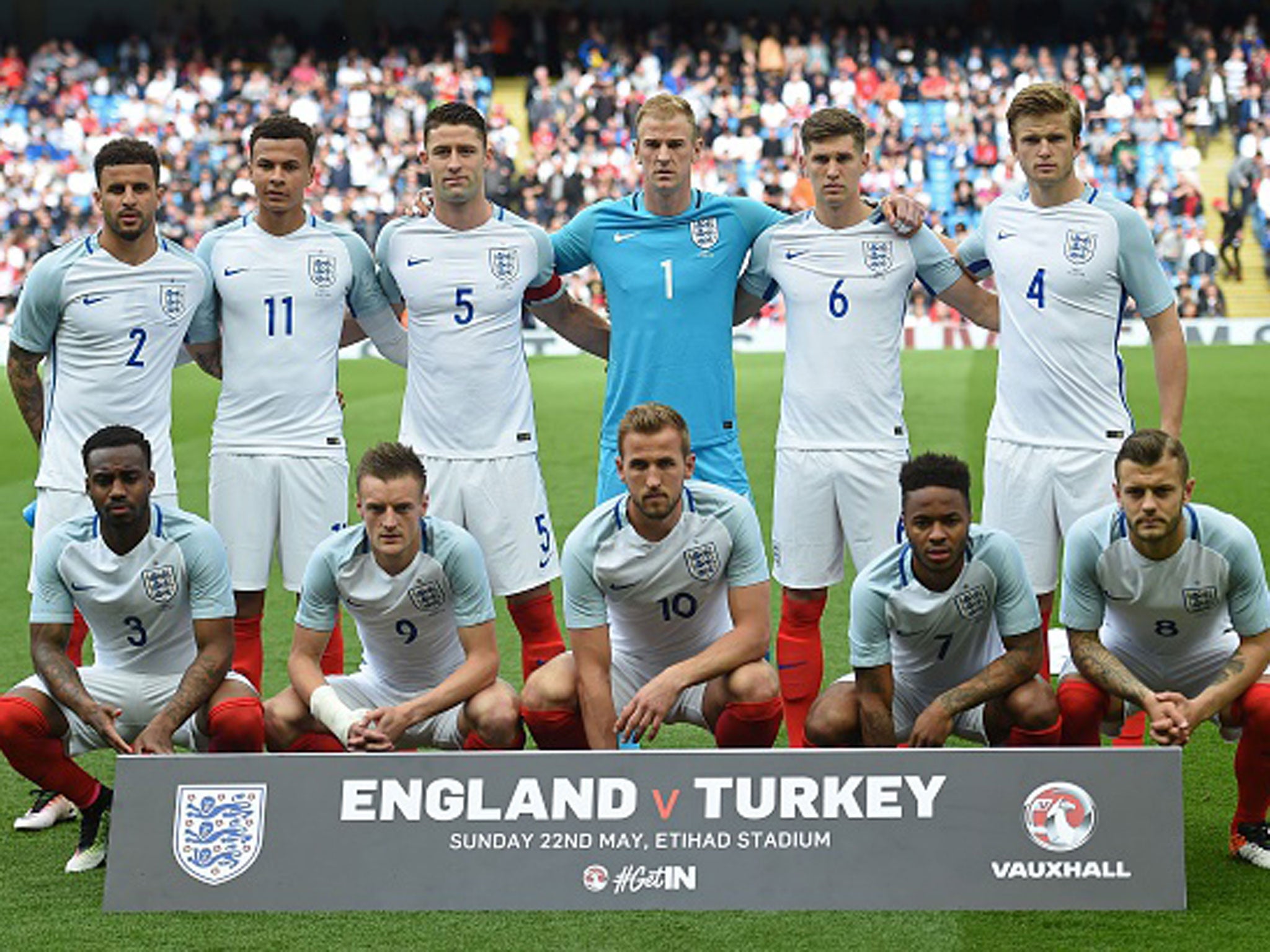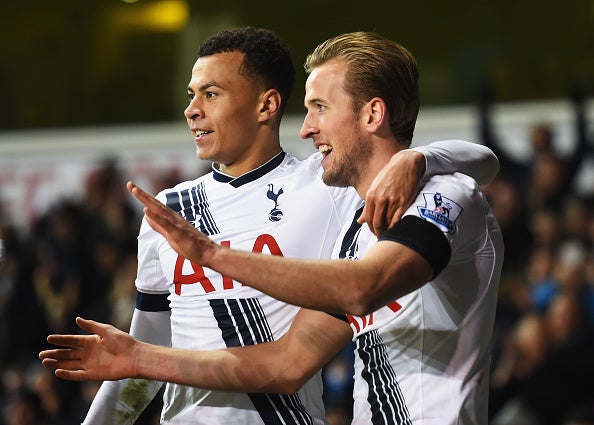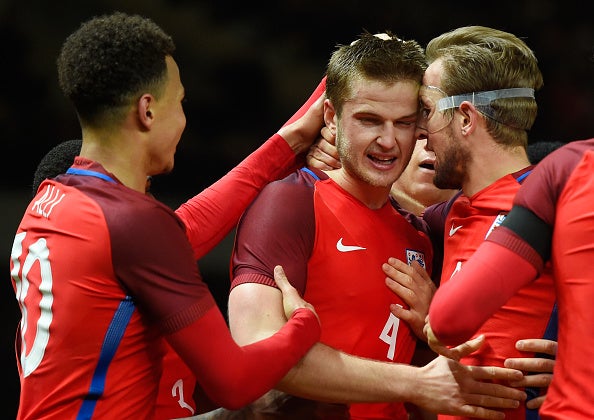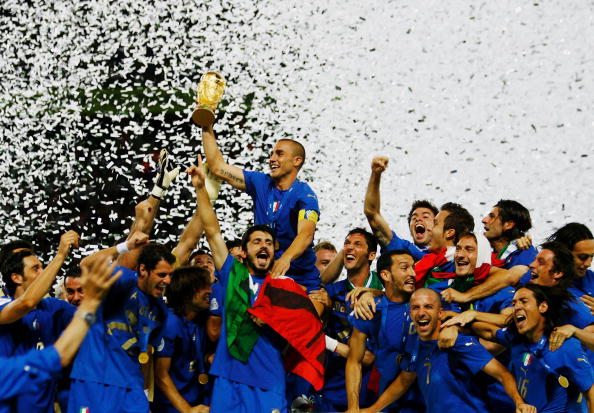Familiarity of club colleagues can spur England to greater good in France this summer, says Harry Kane
Core of players from one side can work to national team's favour at European Championship, history suggests

It might not go down well at the Emirates Stadium, but when England line up against Russia on 11 June at the Stade Velodrome, you would hope that Danny Rose and Kyle Walker are at full-back, that Eric Dier is screening the back four and Dele Alli and Harry Kane are spearheading the attack.
In tournament football five is a magic number. The last three World Cups and two of the last three European Championships have been won by a team regularly fielding five or more players from a single club.
At the Etihad Stadium on Sunday evening, you could see why.
The international against Turkey was two minutes old, both sides were still feeling their way into the game, when Alli played an instinctive through-ball to Kane, the kind he would have delivered a thousand times on Tottenham’s training ground. England were one up.
“In training and pre-season we had that understanding straight away,” said Kane, analysing his 32nd goal of an extraordinary season.
“It is good to have that confidence in a number 10 playing behind you; you know you are going to get that service and you know you are going to get chances.
“It’s great (to have five Spurs players in the team). You train with each other during the season and when you are on the field you have that understanding.

"You could see that with Dele for the first goal. It is great to have players who you play with week-in and week-out.”
It has always been an advantage. The Germans who won the World Cup in 1974 and again 40 years later were overwhelmingly drawn from Bayern Munich. Six of Pep Guardiola’s side started the World Cup final against Argentina in 2014 and a seventh, Mario Gotze, came on as a substitute to score the winner in the Maracana.
When Spain paraded the trophy through the streets of Madrid four years before, Eric Cantona remarked that they should only be celebrating in the north east of the country.
“It was Catalonia, not Spain, who won the World Cup,” he said. No less than six from Barcelona had started the final in Johannesburg – seven if you count David Villa who had just signed for Guardiola.
Perhaps the statistic is not surprising. Barcelona and Bayern were the best club sides in the world when the respective World Cup finals began.
You could say the same for Liverpool in 1980, although selecting half-a-dozen from Anfield did not prevent Ron Greenwood’s side from being eliminated in the group stages of that year's European Championship.
The three men who made Liverpool a great rather than a very good team – Kenny Dalglish, Graeme Souness and Alan Hansen- were Scottish.
Tottenham are not the best club side in the world. They were the third best team in England, shot to pieces by Borussia Dortmund in the Europa League. However, the five who started against Turkey would bring a togetherness that takes a long time to instil in a tournament team.
“It’s great,” said Danny Rose, who named man of the match after the 2-1 win in Manchester.
“I am quite new to the set-up so it helps me having that relationship with the Tottenham lads. I know what Harry likes, Eric likes, Dele likes and what Kyle likes.
“When I’m up the field, I know Eric is there covering me. It has helped me massively and it’s a real privilege to share this occasion with them.”

Sometimes, togetherness can be enough. Italy’s two World Cup triumphs of the modern age had several things in common.
Neither Enzo Bearzot’s side in 1982 nor Marcello Lippi’s of 2006 was among the pre-tournament favourites.
Both drew the bulk of their starting line-up from Juventus. In 1982, Paolo Rossi had just returned from a two-year ban for match fixing while nearly a quarter of a century later the whole club had just been relegated after a similar scandal.
When, giving a press conference during the 2006 World Cup, the Juventus and Italy captain Fabio Cannavaro heard the Juventus manager, Gianluca Pessotto, had tried to kill himself, he walked off the stage, distraught.
A few weeks later, he was lifting the World Cup in Berlin with four of his Juventus team-mates. When asked how Italy had won, Cannavaro pointed to the unity of the side – particularly among those from Turin.

The irony is that Rose’s closest friend in the England set-up is not from Tottenham but Southampton, and Ryan Bertrand is competing with him for the left-back berth in the European Championship.
“He is probably one of my closest friends here,” said Rose of Bertrand, with whom he has played for England at Under-17 and Under-21 level.
“I have known him for a long time, have dinner with him and spend a lot of time in his company. It’s brilliant. I wouldn’t want to be up against anyone else.
“If I were to lose out to Ryan, obviously I would be gutted but there would be no ill-feeling towards him. I’d be cheering him on every step of the way.”
Join our commenting forum
Join thought-provoking conversations, follow other Independent readers and see their replies
Comments